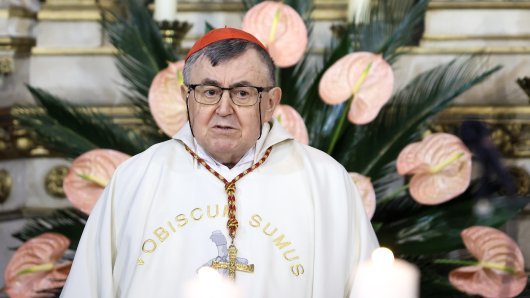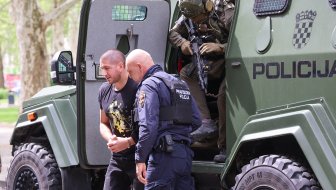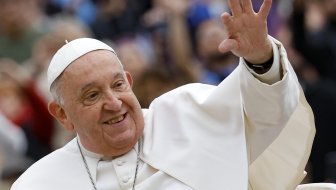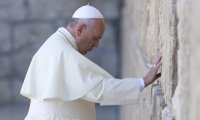A ceremony was held at Bleiburg, Austria on Saturday to commemorate the Croats killed there at the end of the Second World War 67 years ago. This was the first time the annual commemoration was not held under the auspices of the Croatian Parliament, which was condemned by many pilgrims and speakers at the event.
In May 1945, after the victory of Tito's Partisans, thousands of soldiers of the Nazi-style Independent State of Croatia (NDH) and civilians had hoped to surrender to allied forces in Austria. However, they were returned and handed over by British forces to the Yugoslav Communist authorities and many were killed during death marches on their way back to Yugoslavia, while some were killed by the Partisans without trial in the Bleiburg field.
This year's ceremony was organised by the Bleiburg Honour Platoon and by missions of the Roman Catholic bishops' conferences of Croatia and Bosnia and Herzegovina.
The Croatian Parliament recently revoked the sponsorship of the Bleiburg commemoration but decided to support the commemoration of death march victims with HRK 500,000 for this year. The move prompted the authorities of Osijek-Baranja County and Bosnia and Herzegovina's Western Herzegovina Canton to accept the sponsorship of the event.
"Those who are not here today do not belong here with us," Osijek-Baranja County head Vladimir Sisljagic told a crowd of several thousand people. "The Bleiburg tragedy is one of the biggest tragedies in the history of the Croatian people," he said, adding that the Croatian Parliament's decision to revoke the sponsorship was "disgraceful". He warned that such moves were again creating rifts among the Croats and were "opening the old wounds."
Sisljagic described Tito as one of the biggest criminals of the past century who had suppressed any idea or action aimed at creating a Croatian state. He quoted the late President Franjo Tudjman as saying that the Independent State of Croatia had not been just "a Quisling creation" but also "an expression of the desire of the Croatian people to have their own state."
Speaking on behalf of the Bleiburg Honour Platoon, Hasan Efendic said that the Croatian Parliament's decision was of an ideological nature and an attack on national reconciliation that was built into the foundation of the Croatian state. "They are hypocritical and callous towards the victims of Yugoslav communist terror, because they used to come here before to get their political legitimacy and when they got it they revoked the sponsorship," he said.
Mass was led by the Bishop of Sibenik, Ante Ivas. Speaking on behalf of the Croatian Bishops' Conference and the Bishops' Conference of Bosnia and Herzegovina, he said he did not want Bleiburg to be a place of hatred towards anyone and that all victims should be respected. He mentioned the victims of the Ustasha-run Jasenovac concentration camp, but stressed that the Bleiburg victims should not be forgotten either.
The bishop condemned the crimes and dictatorship and drew attention to many unmarked grave sites for which no one had been held to account. He also condemned attempts at falsifying the truth and apportioning the blame between victim and aggressor.
Speaking on behalf of the Islamic community, Idris Besic, imam of Gunja, eastern Croatia, said that a unified and clear position on Bleiburg should be addressed to the international community.





































